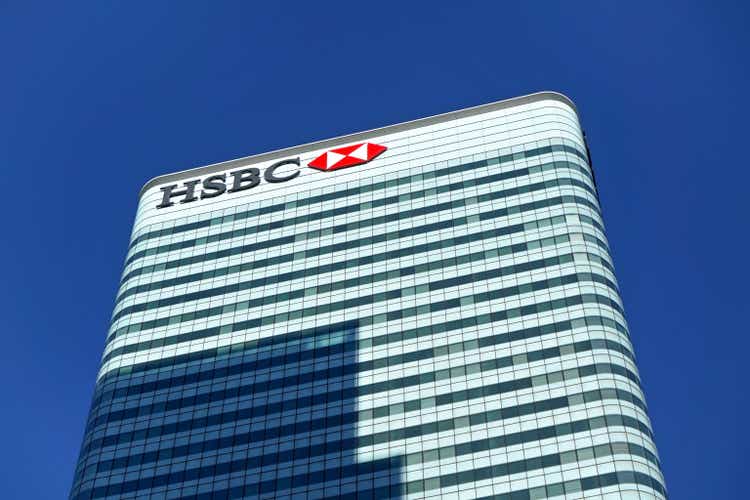Lubo Ivanko/iStock Editorial via Getty Images
By Breakingviews
HSBC’s (HSBC) Canada sale is both pleasing and puzzling for investors in the $122 billion British lender. Chief Executive Noel Quinn has extracted an eye-watering valuation from Royal Bank of Canada (RY), which is planning to axe the lion’s share of the business’s expenses. But if that’s even remotely plausible, the obvious question is whether the global retail megabank model makes sense at all.
RBC is paying $10 billion for HSBC Canada, or three times its Sept. 30 tangible book value. The country’s six major banks on average trade at 1.8 times the same measure of net asset value, based on consensus data for the end of October provided by Visible Alpha. At first glance, then, RBC boss Dave McKay appears to be overpaying. RBC reckons HSBC Canada will generate a little under $700 million of earnings on a standalone basis in 2024, implying a measly 7% return on investment.
But that misses one of the key selling points from RBC’s perspective – giant cost cuts. McKay is penciling in savings equivalent to 55% of the target’s operating expenses. Factor that in, and RBC thinks HSBC Canada’s annualised earnings would near $1.1 billion, implying a healthy 11% return on investment for the buyer. They don’t appear to be flaky, finger-in-the-air estimates. RBC thinks it can achieve more than 95% of the savings within two years of closing the deal. Its share price was roughly flat after the deal’s announcement on Tuesday, suggesting investors at least don’t think McKay has taken leave of his senses.
HSBC investors, understandably, love the deal. Quinn expects it to boost his common equity Tier 1 capital by a chunky 1.3 percentage points when it closes in 2024, opening up the possibility of a multibillion-dollar special dividend or share buyback. Antitrust authorities are one risk, but the combined market share of assets doesn’t seem too high. HSBC Canada and RBC have 2% and 21%, respectively, according to people familiar with the matter.
The bigger question for Quinn is how it’s possible to remove over half of the expenses at one of his businesses within a couple of years. Either HSBC Canada is a particularly inefficient, or large local lenders are simply much better owners of middling retail banks. The discounted valuation of groups with a global sprawl – like Citigroup (C), HSBC, Standard Chartered (OTCPK:SCBFF) (OTCPK:SCBFY), and Banco Santander (SAN) – suggests investors believe the latter. In that case, they’re apt to wonder why Quinn doesn’t go further, for example by selling the Mexican retail business. HSBC Canada is a great coup for Quinn, but also makes the case for an ongoing breakup.
Editor’s Note: The summary bullets for this article were chosen by Seeking Alpha editors.


Be the first to comment